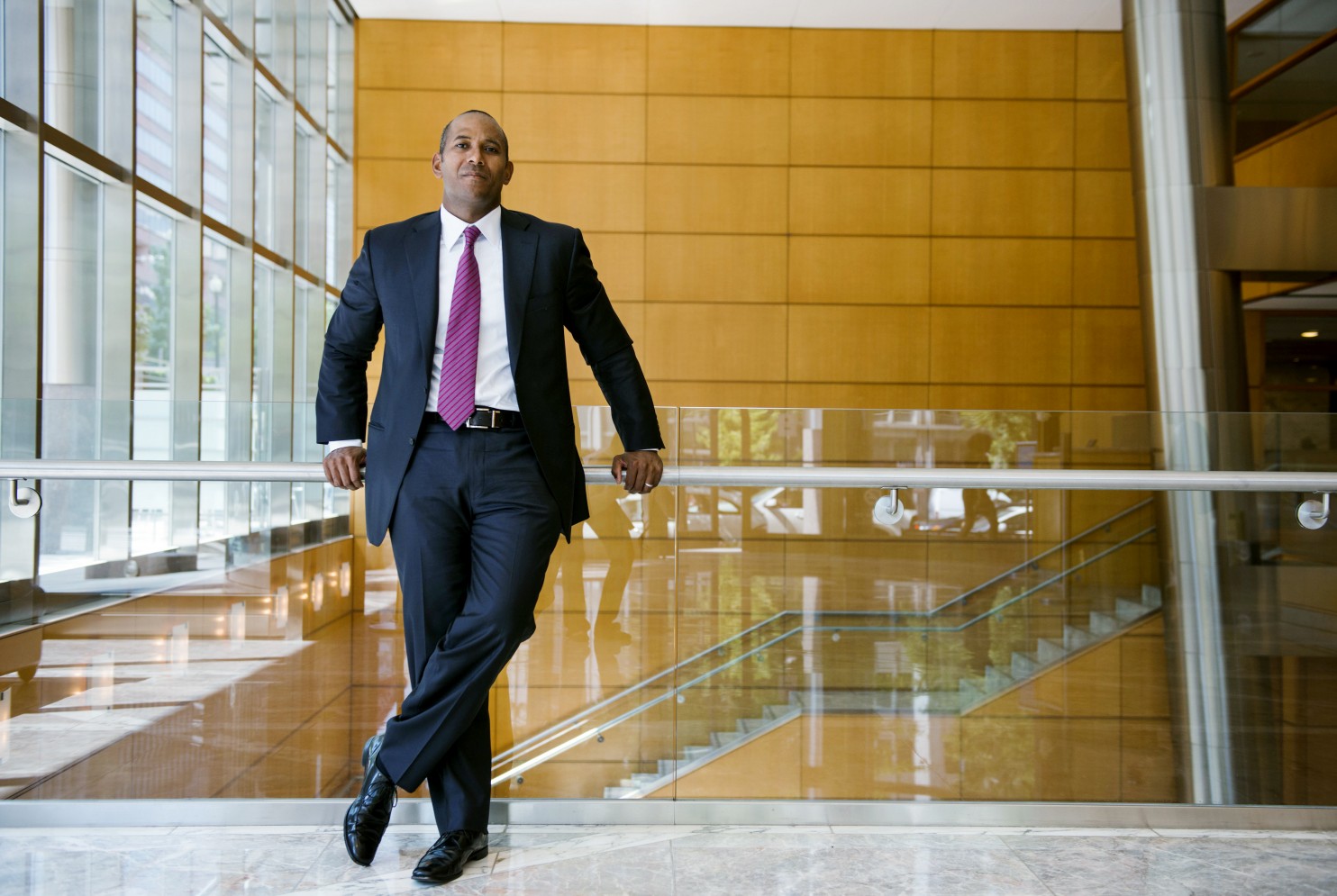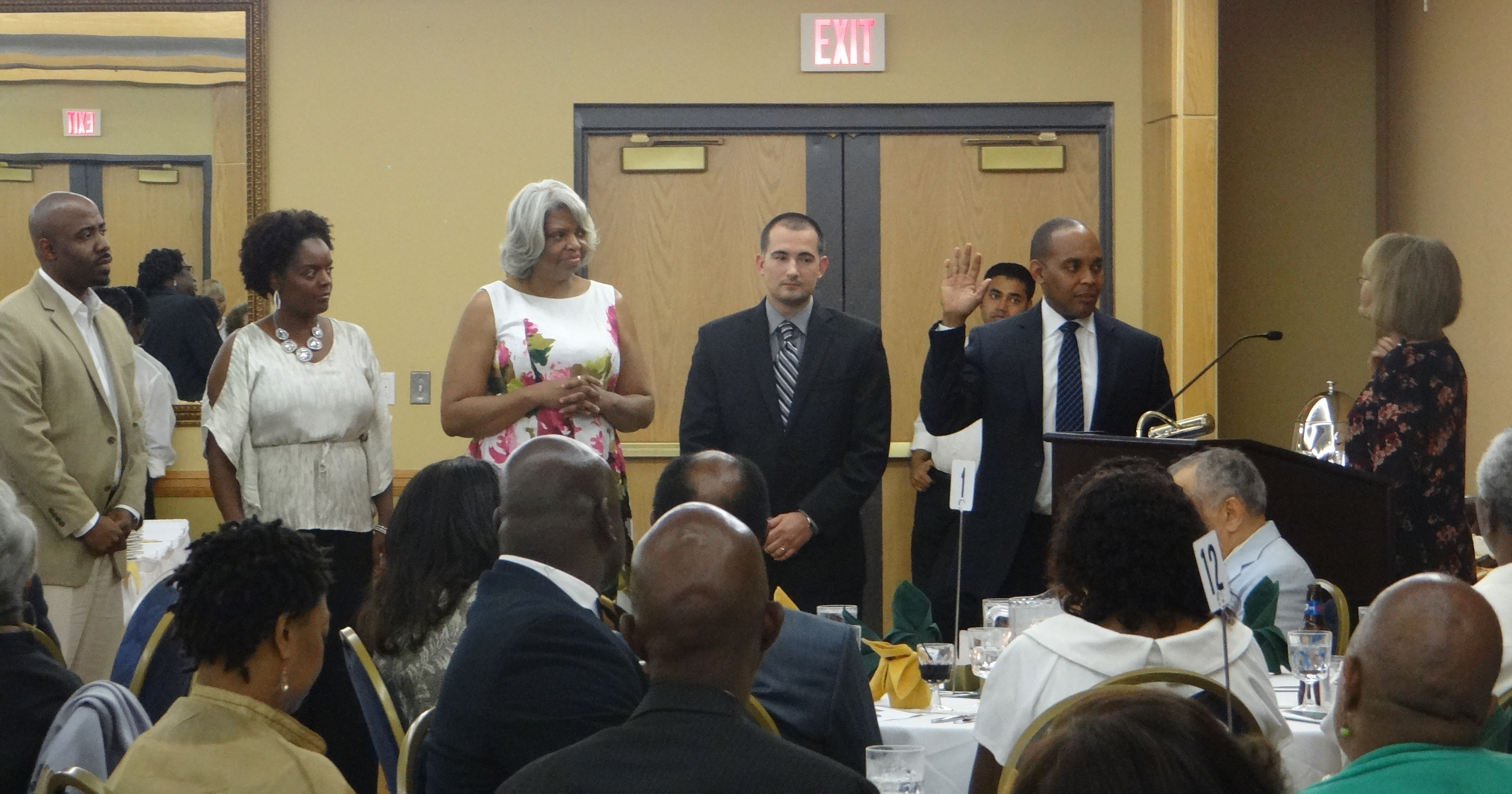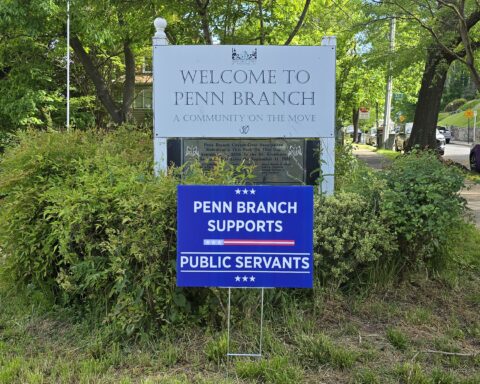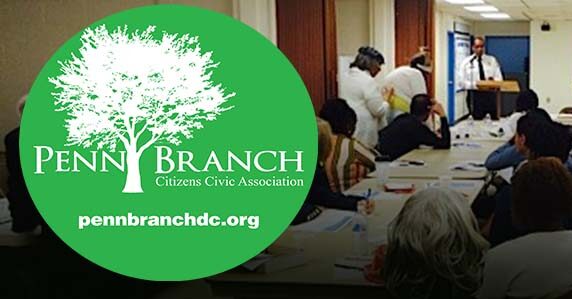His climb from Anacostia leads to Carlyle and Kilimanjaro — and a life-changing view
by Thomas Health, The Washington Post| Sunday, July 27
To make an impact on the times in which you live, it helps to think big. I have been pondering that more and more, and I realize that some people reach a certain place — they make money, buy a nice home, receive personal gratification — then they kick back and shift into cruise control.
Then there are risk-takers like Mark Johnson.
The Princeton-educated 40-year-old had arrived. And it was only going to get better.
Then he quit.
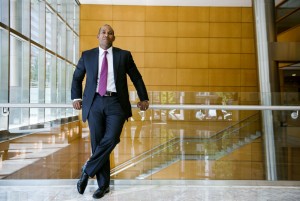
Why? Why throw caution to the wind and lean in?
When he was growing up in Anacostia, his father — an air traffic controller like his grandfather — would point to the sky and identify different airplanes to his son.“It sort of symbolized that there was a great big world out there open for exploration,” Johnson said. “It allowed me to see beyond the world around me. That’s never left. The planes gave me an interest in technology.”
His new firm, Astra Capital Management, comes from the Latin “per astera ad astra,” which Johnson roughly translates into “the harder you work, the higher you go.”
Johnson has been thinking big since his hour-long bus and Metro commutes from his home near Minnesota Avenue to St. Albans School in Northwest D.C., educator to sons of senators, ambassadors, doctors and millionaires.
His mom and dad saw education as the path out of Anacostia. The working-class family — his father was delivering the Wall Street Journal from a truck the day Mark was born (the air controller job came later) — helped secure him a spot at Ben Murch Elementary in Northwest D.C., known as one of the better public schools in the city.
“I traveled between two very different worlds,” he said. “I would go to schools where the kids came from backgrounds more privileged than mine. Then I would go home, and I was the kid who didn’t necessarily fit in. I had the good education.”
“I was at St. Albans, but not of St. Albans.”
Instead of sowing resentment, going to school alongside the “haves” made him want to get there himself.
He captained St. Albans’s lacrosse and swim teams, was president of his senior class, then went to Princeton where he earned his bachelor’s in economics and was a member of a lacrosse team that won two national championships. After college and stints at Merrill Lynch and a small private equity firm, he attended Harvard Business School. He joined Blackstone Group, a rival of Carlyle, in 2001.
William Kennard, a former chairman of the Federal Communications Commission and a partner at Carlyle at the time, recruited Johnson from Blackstone in 2004.
When he arrived at Carlyle’s office on Pennsylvania Avenue, there was a file on his desk indicating that he was going to Tokyo to buy a wireless company.
“I spent the first five years shuttling between D.C. and Tokyo,” Johnson said.
He took quickly to private equity and grasped that its model of buying, improving and selling companies was not far afield from his mother’s job of helping disabled people hold jobs and become more productive.
“At the end of the day, what we do is take ideas and turn them into execution,” he said.
Which is what he did at Carlyle, piling up an impressive list of deals, including the purchase of Syniverse Technologies, which processes payments for wireless companies.
“It’s the Switzerland of the mobile Internet,” Johnson said.
He joined Carlyle’s prestigious U.S. Buyout Fund. He made partner, where the really big money resides. He worked with Carlyle’s biggest names: Dan Akerson (who became chief executive of General Motors) and co-founder and investment chief Bill Conway. He joined another select group — one of the few financial types playing in the sandbox of billion-dollar deals who were of African American descent.
“There were very few of us,” Johnson said.
After Kennard left Carlyle to become the U.S. ambassador to the European Union in 2009, the two stayed in touch. When Johnson visited Brussels on business, he broached an idea he had of starting a private equity fund with Kennard.
Johnson’s idea was to take his expertise at deals and combine it with blue-chip names like Kennard and former Alltel president Kevin Beebe. Their niche would be smallish investments of $20 million to $50 million, compared with the billion-dollar infusions he was accustomed to at Carlyle and Blackstone.
“I had noticed smaller and smaller companies needed access to global relationships and industry insights that smaller private equity firms could provide,” he said.
He decided to take the leap last August during a seven-day trek with friends up 19,000-foot Mount Kilimanjaro, where he was celebrating his 40th birthday. Sitting on the mountain, the tallest in Africa, he decided to go for it.
“It crystallized for me how I think about life, constantly striving to set different goals. It confirmed in my mind emotionally that this was the right decision.”
He brought on Kennard. He brought on Beebe.
Johnson is the managing partner and owns a majority of the business. He sublets space on K Street and is in the midst of refining a strategy and pursuing a few deals.
One thing he is sure of is that Astra will operate in the space where Johnson has the most familiarity: communications and technology companies that serve other businesses. Payment processing, information services, mobile communications, broadband, technical services — those things you never see that allow you to download your favorite Web site from your mobile device anywhere in the world.
It isn’t going to be a cakewalk. He knows that. They haven’t even started raising money, which will come from the usual private equity sources: pension funds, foundations, universities, high-net-worth individuals. Maybe even Carlyle.
Johnson said he is not ready to retire. His wife has a senior executive job at Fannie Mae. He has two children and “a mortgage.”
“We’ve got enough cushion to take this risk intelligently,” he said. “It’s definitely not easy street if we don’t pull it off.”
But it’s not about money. It’s about going after the next big thing in his life.
Johnson said he feels a need to create a return for those who invested in him.
“Too many people have sacrificed for me . . . to relax when it gets comfortable,” he said. “If I wasn’t willing to take these risks, then I don’t deserve all the comforts I have.”
By the way, Johnson is “of” St. Albans now.
He sits on its governing board.

